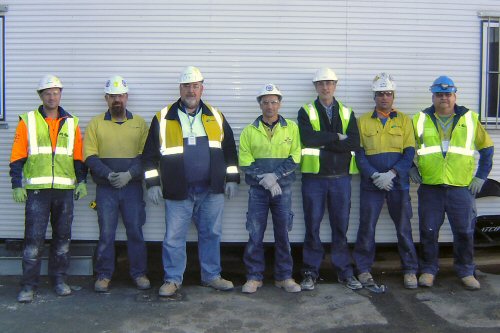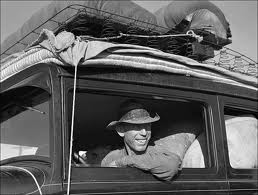
Last week the article below appeared in a North Queensland paper. FIFO Footballers is the story of one player, David Glossop’s decision to fly in to play a game of footy at Mt Isa on Saturday morning and then fly back out again on Sunday to be home for work the next day.
In fact what the article is about the opposite of what FIFO workers are doing. While David is flying in and out for the love of the game most FIFO workers are doing FIFO in order to keep bread on the table and their families afloat. But there are some ideas here that I think are interesting.
http://www.northweststar.com.au/story/1724501/fifo-footballers/?cs=191
This article and the ideas presented within it raises a question about labels and how we as a culture use labels to help us understand things. FIFO is clearly a label that is helping many industries describe the increasing need for mobility in their workforce. Where as in David’s case the journalist is using FIFO as a way of describing how one player chooses to travel to and from the game he loves. In the past would David’s actions have been described differently or not at all? Haven’t footballers been flying to and from interstate games for years without them being labeled as FIFO?
This leads me to ask the question does the use of the phrase FIFO help us to understand that for people like David the decision to FIFO to and from his football commitments is done so with a duel sense of necessity and a little trepidation at having to travel so far in order to do what he feels he needs to do/loves to do while at the same time leaving behind his family who he also loves and wants to be with?
I became interested in FIFO and its impact on the family because as an idea it helps to focus a broad discussion and attach some inferred meaning around the issues of work, family, relationships and children that no other label thus far has done quite so succinctly.
Through exploring FIFO and its impact on the Family a range of common family, relationship, work/life balance, management of the children, dealing with stress, women doing too much, depression and male suicide issues can be explored. For me and the work I am doing as a researcher, writer and documentary film maker the FIFO label is a helpful umbrella from which to explore issues around support for the FIFO family and the family in general.
Discussion around practical family support and the important work of raising the children and managing the domestic life is almost non existent in this country. There is also limited discussion about the enormous economic and social impact of this invisible work and, except for in the FIFO debate, it is not a topic of discussion anywhere.
In fact the family management issue both inside and outside FIFO workers’ lives is one that needs urgent recognition, further research and open discussion that will facilitate a willingness to share ideas, solutions and potentially make our jobs and our lives as men and women much easier. As more and more families have two parents working full time jobs, where does the support for families come from if it is not even acknowledged nor discussed as an issue?
The idea that admitting we need help to develop ideas around processes and policies to ensure that all workers, FIFO, domestic, or otherwise feel supported, valued and acknowledged should be our aim. If labeling something helps us to acknowledge a need for conversations, ideas and potentially solutions at an individual, community and government level then bring on the labels.
When no longer needed perhaps we can dispense with using such label but in the mean time if they help us understand the complexity of our modern work and family lives then why not use them?
What labels have helped you? Is the issue of family management something you are working on in your household? What ideas and suggestions have your family come up with to ensure that all members of the family, workers, children and carers are supported and nurtured?










